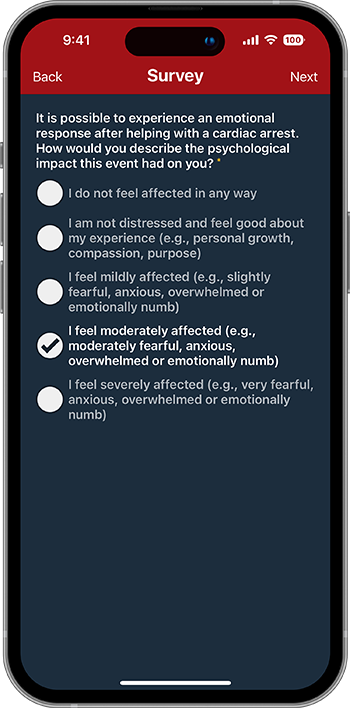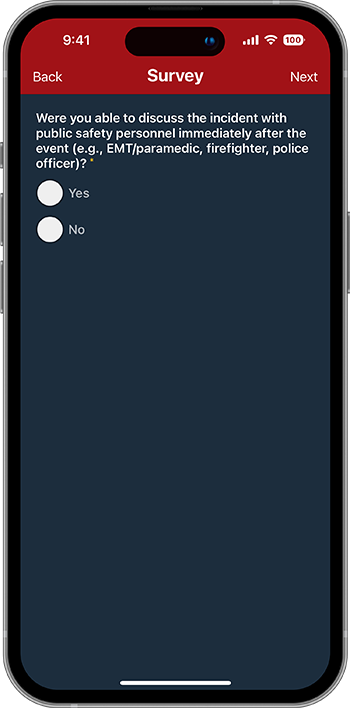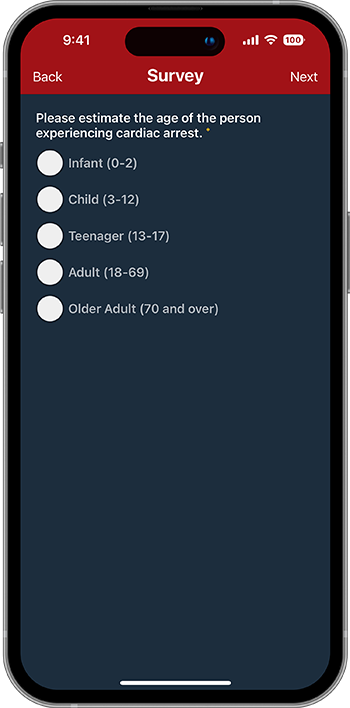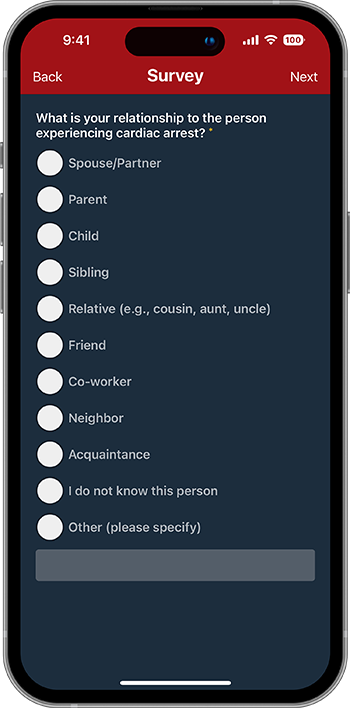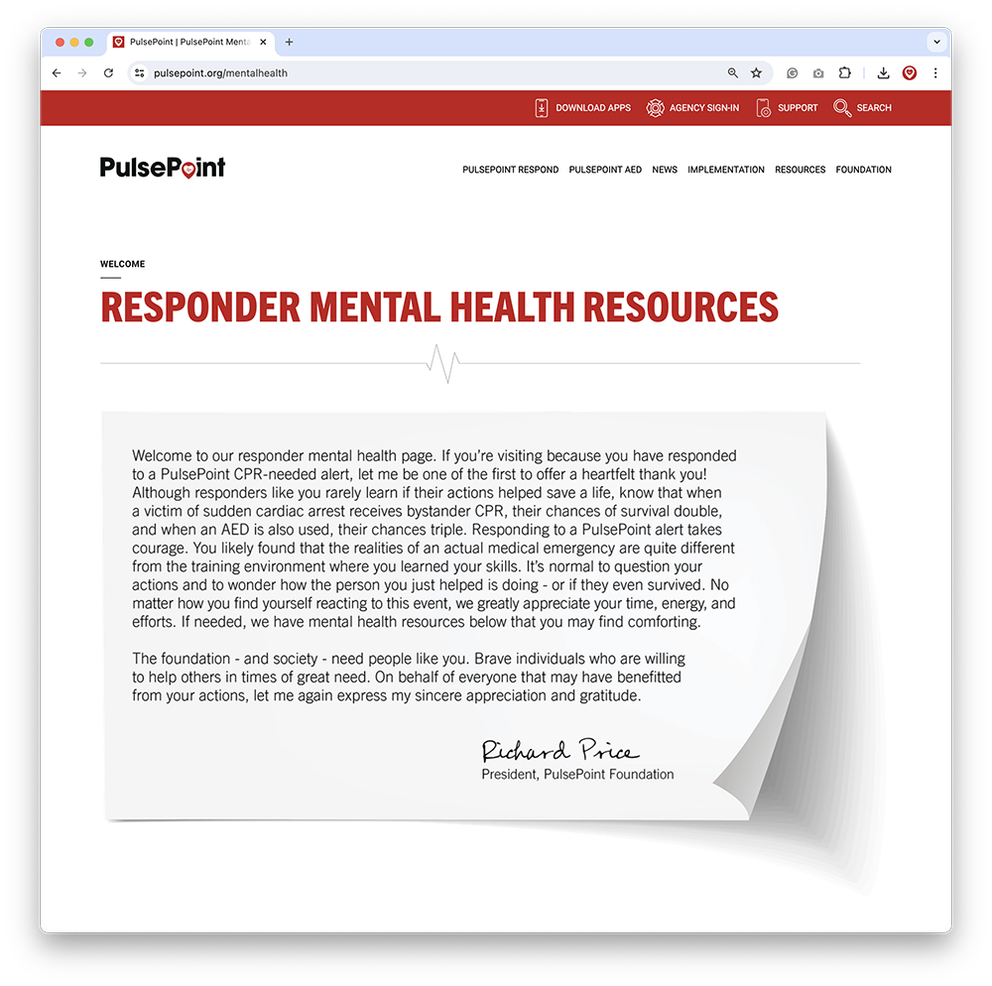Responder Mental Health
PSYCHOLOGICAL IMPACT OF WITNESSING CARDIAC ARREST
Many factors contribute to the psychological distress a lay responder may experience after witnessing a sudden cardiac arrest. These include the unknown or fatal outcome of the patient, the stressful and disorienting environment of a life-threatening medical emergency, self-doubt in regards to preparedness or performance, and the once-in-a-lifetime nature of this type of event.
SUPPORTING RESPONDER MENTAL HEALTH
Because PulsePoint has the ability to contact responders after they participate in a cardiac arrest incident, the foundation is in a unique position to help address distressing thoughts related to their experience. Without timely intervention responders may find it difficult to understand their feelings and be unaware of helpful resources available to them.
PulsePoint requests the immediate assistance of hundreds of CPR-trained and AED-equipped responders every day—and we are committed to providing them with the focused mental health resources they may need in addition to expressing gratitude for their selfless actions.
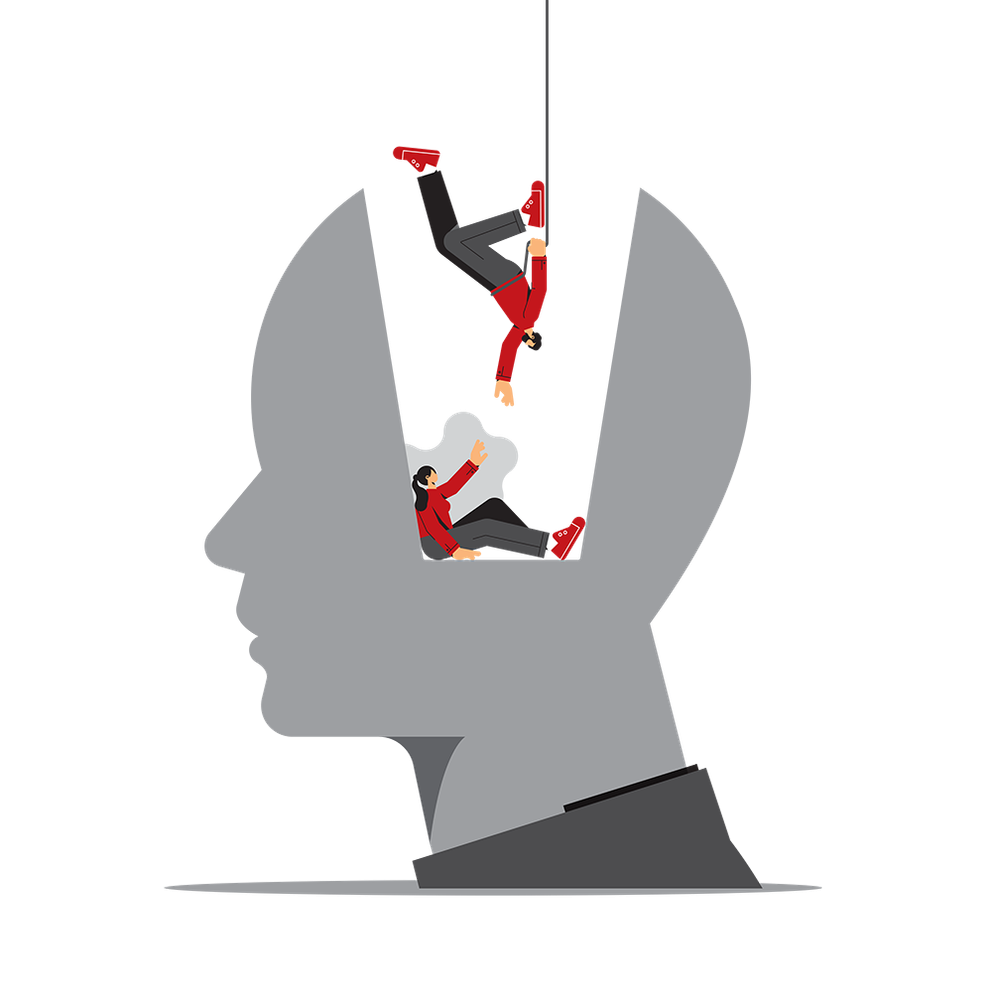

Mental Health Research
Reported distress
UNDERSTANDING THE SYMPTOMS
Experiencing psychological distress from assisting with a CPR-needed incident can lead to flashbacks or recurrent and intrusive images of the cardiac arrest victim and scene, difficulty sleeping or exhaustion, social withdrawal, difficulty concentrating, confusion, avoidant behaviors, intense emotions, feelings of loneliness, and anxiety, among others.
MEASURING THE IMPACT
The foundation seeks to ascertain the emotional response of all individuals that arrive at a cardiac arrest event after receiving a PulsePoint CPR-needed alert. Our summary findings are shown in the table below. The good news here is that most responders are not affected. However, that doesn't lessen the need to offer meaningful, easily accessible resources for those that may benefit from them.
| Self-reported distress | Responders |
|---|---|
| Not affected | 76% |
| Mildly affected | 17% |
| Moderately affected | 5% |
| Severely affected | 2% |
1,600 responses (10/25/2024)
Mental Health Research
Responder survey
SURVEYS GIVE A VOICE
After a CPR-needed event is closed at the emergency communications center, users that were sent an alert receive a PulsePoint post-incident survey. Similar to an After Action Review, the app-based survey covers a variety topics related to the user and actions in reaction to the alert, including up to five questions related to mental health. Only users that arrive on scene receive mental health questions.
VIEW AND ANALYZE YOUR SURVEY DATA
Authorized agency personnel can view and download survey responses in PulsePoint Central within the CPR-needed Incidents module for events within their jurisdiction. Public users remain anonomous unless they choose to share their email address within the survey.
PulsePoint Responder Resources
Information and Resources
SUPPORT, INFORMATION, AND ACCESS TO EXPERTS
The foundation publishes a wide range of mental health resources including links to trusted educational content and industry leading initiatives from our partners at the Cardiac Arrest Survivor Alliance and Heartsight.
Responders are directed to these informational resources primarily from the post-incident survey described above, but also from PulsePoint FAQs and product support channels. Agencies are welcome to link their internal and public-facing CPR/AED information pages to pulsepoint.org/mentalhealth.
Agency Responder Resources
Agency Support
ASSISTING DISTRESSED RESPONDERS
Does your agency have personnel or ancillary resources that provide support after traumatic situations, such as a department chaplain or crisis intervention team members? If so, consider utilizing these valuable individuals when a community responder experiences distress after performing CPR or assisting with a cardiac arrest in your jurisdiction.
HOW TO SPECIFY AN AGENCY MENTAL HEALTH CONTACT
In the PulsePoint Central User Management module, agency defined users with a Communication/Email Preference of Responder Mental Health are immediately notified if a user submits a survey that indicates moderate or severe psychological distress. If the agency does not have a Responder Mental Health contact defined, no email is sent. Likewise, if the responder does not share their email within the survey an agency notification is not sent (even when moderate or severe psychological distress is indicated).
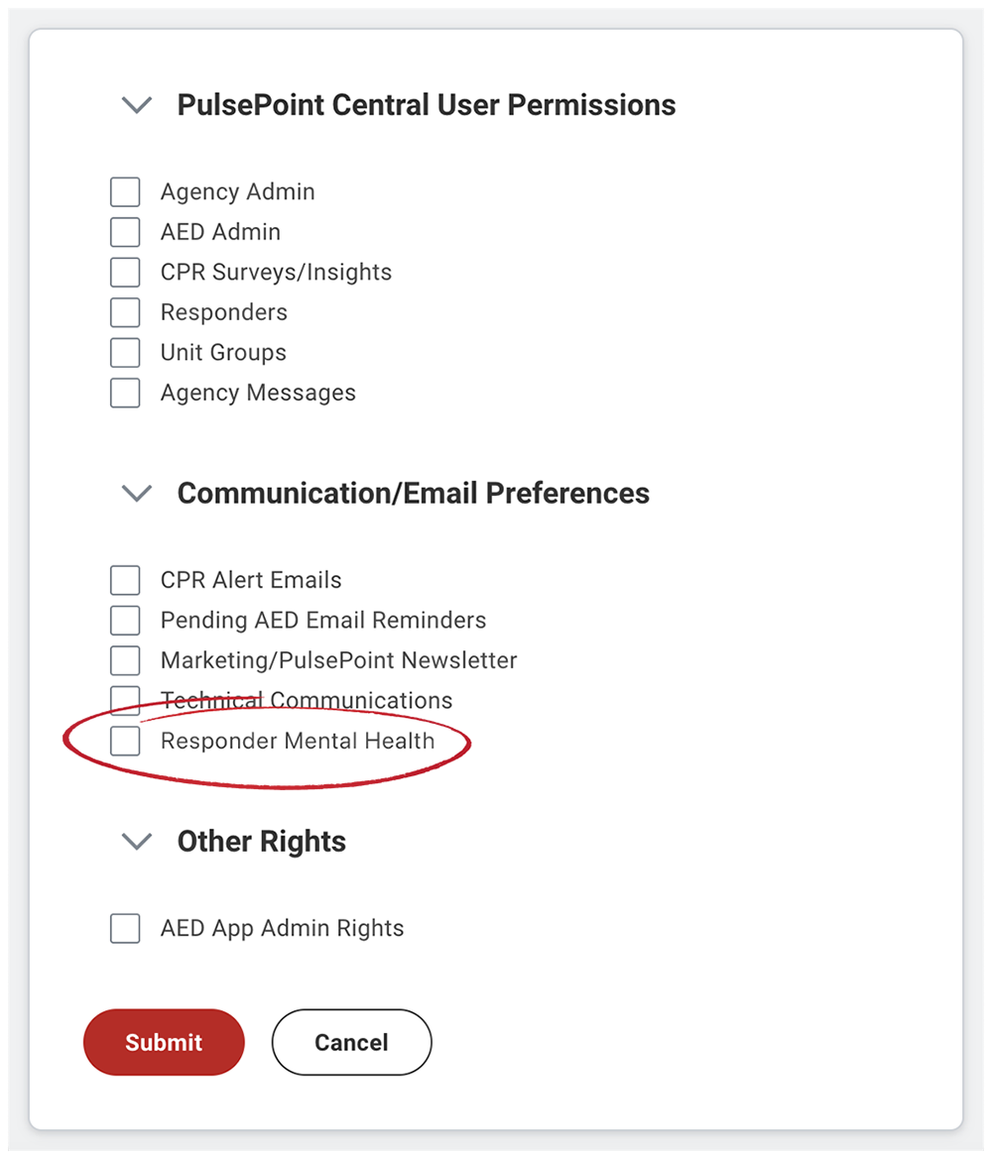
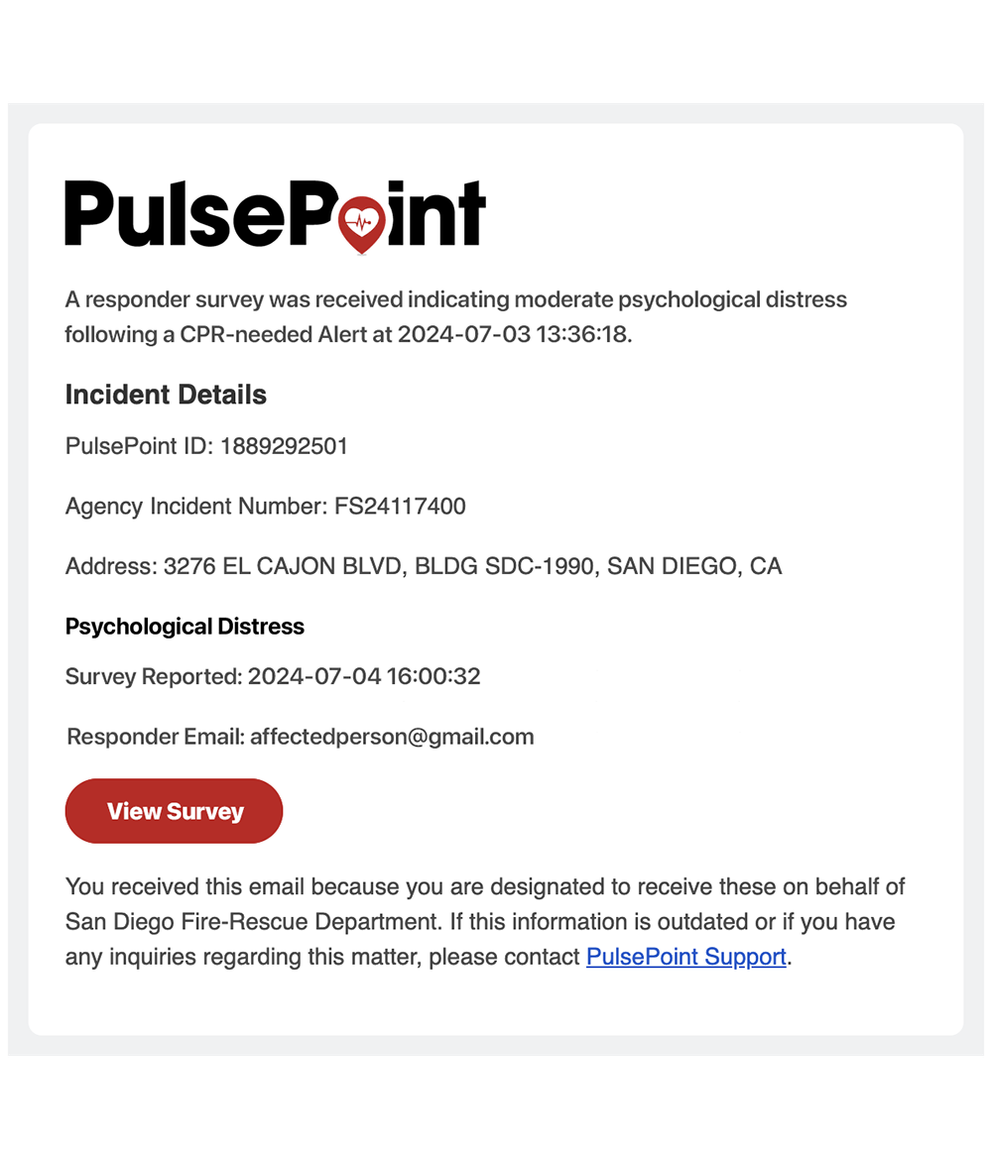
Please direct inquires regarding the PulsePoint responder mental health research initiative to Halle Price.
